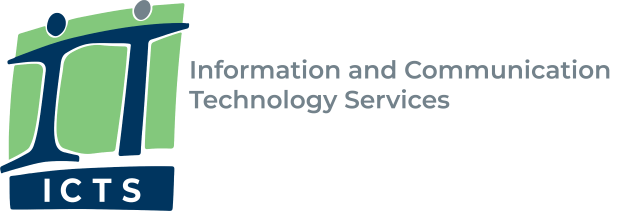The Enterprise Infrastructure Services (EIS) division supports, maintains, develops and implements UCT's central ICT infrastructure and shared services. EIS strives to provide a seamless and transparent end-to-end user experience making it easy for a UCT student or staff member to access resources from any device, anywhere and at any time in a secure manner.
Teams
Workplace services
This team delivers customer-centric services which are tailor-made for university-wide end user profiles and needs. These services present desktop, mobility and collaborative technologies and processes in a manner which may be used on demand and in a self-service manner.
Technologies and processes underpinning this service offering include:
- Desktop virtualisation and remote access
- Virtual desktop infrastructure
- Application virtualisation
- Remote desktop services
- Desktop image management and deployment (e.g. lab imaging)
- End user device configuration and specification
- Remote desktop management tools
- Cloud – end user software as a service (SaaS) (i.e. Office 365/Google)
- Email and calendaring
- Desktop applications (non-cloud)
- Printing (iPrint and Nashua for staff and students)
- Desktop backup infrastructure (Attix)
- General network Infrastructure
- Access layer, network cabling and points, including WiFi access devices
- VoiP / Lync / Skype for Business
- Video conferencing
Application services
This team is responsible for the support of all applications, that are used by primary and secondary activities. This includes research and administration applications, and the hosting of teaching and learning applications. They also investigate all new requirements.
Application services include production support, application configuration and hosting, application-specific platform configuration, software upgrades and changes, documentation, application as a provisioning service, and brokerage.
Technologies and processes underpinning this service offering include:
- Research application support
- Teaching and learning application support (e.g. lecture recording)
- Administrative application support (SAP, PeopleSoft, Converis)
- Administrative applications (CRM, RMS etc.)
- Enterprise SaaS (cloud-based)
- Web platforms, content management systems and repositories (e.g. Drupal, DSpace, SharePoint etc.)
- Infrastructure applications and services (ServiceNow, SCOM etc.)
- Database administration (MSQL, PosGres, MySQL etc.)
- Service monitoring and reporting (failure alerts, availability, capacity, utilisation, etc.)
- Bandwidth monitoring, metering and reporting
- Infrastructure metering and billing
Core Infrastructure Services
This team is responsible for customer-centric services relating to platforms, storage and the central network LAN and WAN-related infrastructure.
Technologies and processes underpinning this service offering include:
- UCT’s data centre environments
- University-wide, private, hybrid and shared multi-tenant cloud infrastructure (IaaS, PaaS, SaaS)
- Scientific computing
- Computing platforms (Windows, Linux, VMware, Hyper-V)
- Server virtualisation
- Hosting
- Storage services (Data service, Archival, Replication, Backup & Storage)
- Network infrastructure (Core, edge and data centre networks, firewalling)
- IP Infrastructure (DNS, DHCP)
- Demilitarised zone infrastructure, systems and services
- Disaster recovery and high available services
In addition, the team uses cloud-based infrastructure, architectures, design, development, implementation, such as DEVOPS and associated provisioning processes. They perform ongoing analysis and optimise cloud-deployed workloads, storage and recovery for performance, availability, reliability and cost.
Information and Cybersecurity Services
The Information and Cybersecurity Services team is responsible for university-wide information and cybersecurity incident response and readiness, policy coordination, compliance, information and cybersecurity awareness, information and cybersecurity communication, reporting, coordination of IT standards development and the management of the UCT Cybersecurity Incident Response Team (CSIRT). The team also incorporates the identity and access management capability, as well as authorisation and authentication.
In addition, the team contributes to UCT governance structures, frameworks, policies, process and standards, while establishing and maintaining appropriate internal and external sectorial links.
Software Development Services
This team is responsible for the development, implementation and maintenance of bespoke development solutions using contemporary programming languages such as C, C#, Ruby, Rails, Python and Java. Resources will focus on development spanning visualisation, pipeline development, cloud infrastructure integration and harnessing artificial intelligence, machine learning technologies, and integration.
